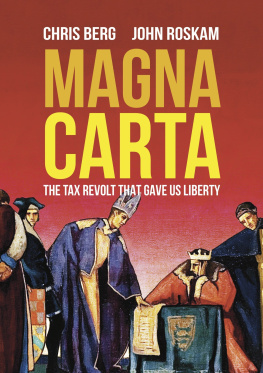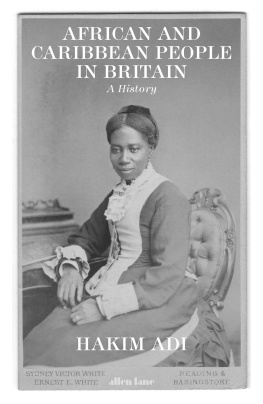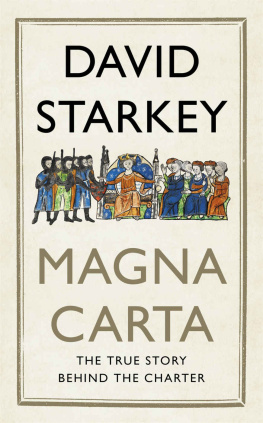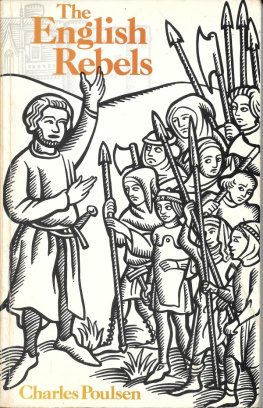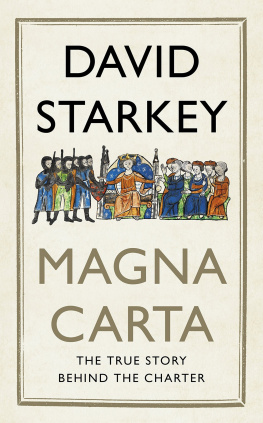Edward Vallance is a Reader in Early Modern History at Roehampton University. After reading history at Balliol College, Oxford, he was DeVelling Willis Research Fellow at the University of Sheffield. He writes a historical blog at www.edwardvallance.wordpress.com and is a regular contributor to the New Statesman and BBC History Magazine.
A Radical History of Britain is an opportune volume powerful This is a vigorous and wide-ranging account Robert McCrum, Observer
Anyone concerned about the future of parliament, constitutional reform and politics in general will find plenty of inspiration in this accessible, often gripping history Frank Trentmann, Sunday Express
The publication of A Radical History of Britain could not be more timely An extremely instructive and comprehensive survey Robert Colville, Daily Telegraph
A trenchant salute to the tradition of dissent and demands for social and political reform This well-written and stimulating book makes a convincing case for the radical and/or rebellious tradition as part of the warp and woof of British history A. W. Purdue.
T HE G LORIOUS R EVOLUTION
Published by Hachette Digital
ISBN: 978-1-405-52777-4
Copyright Edward Vallance 2009
All rights reserved. No part of this publication may be reproduced, stored in a retrieval system, or transmitted, in any form or by any means, without the prior permission in writing of the publisher.
Hachette Digital
Little, Brown Book Group
100 Victoria Embankment
London, EC4Y 0DY
www.hachette.co.uk
No man can have in his mind a conception of the future, for the future is not yet. But of our conceptions of the past, we make a future.
Thomas Hobbes
To Linnie, with all my love
CONTENTS
PART ONE:
A TALISMAN OF LIBERTY
PART TWO:
WHEN ADAM DELVED AND EVE SPAN
PART THREE:
THE POOREST HE THE GREATEST HE: RADICALISM IN THE ENGLISH REVOLUTION
PART FOUR:
THE AGE OF PAINE: BRITISH RADICALS AND THE FRENCH REVOLUTION
PART FIVE:
THE MASK OF ANARCHY: RADICALISM FROM WATERLOO TO THE GREAT REFORM ACT
PART SIX:
A KNIFE-AND-FORK QUESTION? THE RISE AND FALL OF CHARTISM
PART SEVEN:
THE BLOODLESS REVOLUTION
T HE F IRST B RITISH R ADICAL : A LFRED THE G REAT
King or no king he ought to have minded the cakes.
Denewulfs wifes words to Alfred as imagined by H. E. Marshall in Our Island Story (1905)
I n the early months of 878, Alfred, King of the West Saxons, was in hiding in the dank and impenetrable marshland of the Somerset Levels. He had been forced to flee the royal fort at Chippenham after a surprise attack by the Viking leader Guthrum while he was enjoying the traditional festivities of Twelfth Night. The pagan Vikings obviously knew enough of the Christian calendar to exploit its festivals for military advantage. It was the lowest point in a long military struggle against the Danish invaders, which had begun in 865, six years before Alfreds accession to the throne, when Ivar the Bonelesss army landed in eastern England. The Saxon kingdoms had fallen one after another: first Northumbria, then East Anglia, then Mercia; their kings either fled or were slaughtered. By the time Alfred was made king, a second Danish force, under Guthrum, had already landed and made its way deep into Alfreds Wessex lands.
Alfred now stood in danger of following the fate of the other Saxon leaders. He already appeared a king without a kingdom, and according to popular legend, was forced to live in hiding in the home of a swineherd, Denewulf. The swineherd had not told his wife their guests true identity: she assumed that Alfred was simply a friend of her husbands and therefore a fellow commoner. The King was not, at least as far as she was concerned, a particularly welcome guest. Alfred spent most of his time brooding, gazing into the hearth and contemplating the low ebb to which his fortunes had sunk. Determined that her sullen lodger would make himself useful, the swineherds wife set Alfred to minding the cakes that were baking over the fire, instructing him to turn them once they had gone golden on one side. Alfred promised to tend them while she busied herself with her other chores, but his mind quickly drifted back to his predicament and the threat from the Viking invaders. The flames leaping in the hearth became the burning thatch of English homes, set alight by Danish marauders, thick smoke filling the sky.
Alfred was shaken from this dark vision by the shrieks of Denewulfs wife. The smoke had not been merely in the Kings mind, but was pouring from the now blackened cakes he had been set to watch. The woman scolded him for his negligence, still not realising that the house-guest was her king. But, once her husband had revealed Alfreds identity, the King did not rebuke her for her harsh words. She had shaken him from his indolent depression and reminded him that fates were changed by action, not talk. In May of 878, from his camp at Athelney, he rallied the Saxon men and routed the Danish forces at the Battle of Edington. Guthrum surrendered and along with thirty of his followers was baptised. Denewulf, meanwhile, was made a bishop.
The legend of Alfred and the cakes, which originated in an eleventh-century life of St Neot, has become one of the most famous stories in English history.
The story of the cakes became so synonymous with the great Saxon king that Sellar and Yeatman in their classic satire on the history textbook 1066 and All That could rechristen him Alfred the Cake. As that work indicated, though the legend was deeply familiar, it was not all that clear what it meant. In fact, the myth, in its most celebrated retelling in Henrietta Marshalls Our Island Story, first published in 1905, formed part of a radical reinterpretation of British history.
Marshall followed His achievements were legion:
He collected the laws and wrote them out so that people could understand them. He did away with the laws which he thought were bad, and made others. One law he made was, that a man who had done wrong could not be punished unless twelve men agreed that he really had been wicked, and ought to be punished. This was called trial by jury, and means trial by those who have promised to do justly.
Our Island Storys combination of history and myth as well as more historically grounded incidents, its narrative included stories relating to King Arthur, Merlin and Robin Hood proved a great success with adults and children alike. In 2005, a century after it was first published, the right-wing think-tank Civitas, with the assistance of the Daily Telegraph, started a campaign to provide every primary school in Britain with a reprint of the book. The campaign was an unqualified success and the book went on to become a bestseller all over again.
Though the type of grand narrative offered by Marshall was anathema to the national curriculum, the high sales of Our Island Story demonstrated that this was not the case with the general public. The most popular recent television treatments of our past, such as Simon Schamas History of Britain and David Starkeys Monarchy, by and large followed the model of focusing almost exclusively on the actions of kings and queens. The same has held true for historical drama, with the greatest ratings success being a sexed-up retelling of Henry VIIIs marital affairs, The Tudors.
However, if Marshalls approach
Yet, as Antonia Fraser noted, far from offering a jingoistic, imperialist view of history, Our Island Story was, in fact, a subtly subversive text. For Marshall, the significance of the story of the cakes was that it showed Alfreds humility and magnanimity. Instead of taking umbrage at being upbraided by his social inferiors, he pulls himself together and sets about defeating the common foe. Denewulf is therefore rewarded, not just for providing sanctuary to the King, but also for his wifes invaluable candour. (Indeed, it is telling that in Marshalls version of the story, unlike in others, the swineherds wife refuses to temper her scolding even once the identity of their guest has been revealed.)



